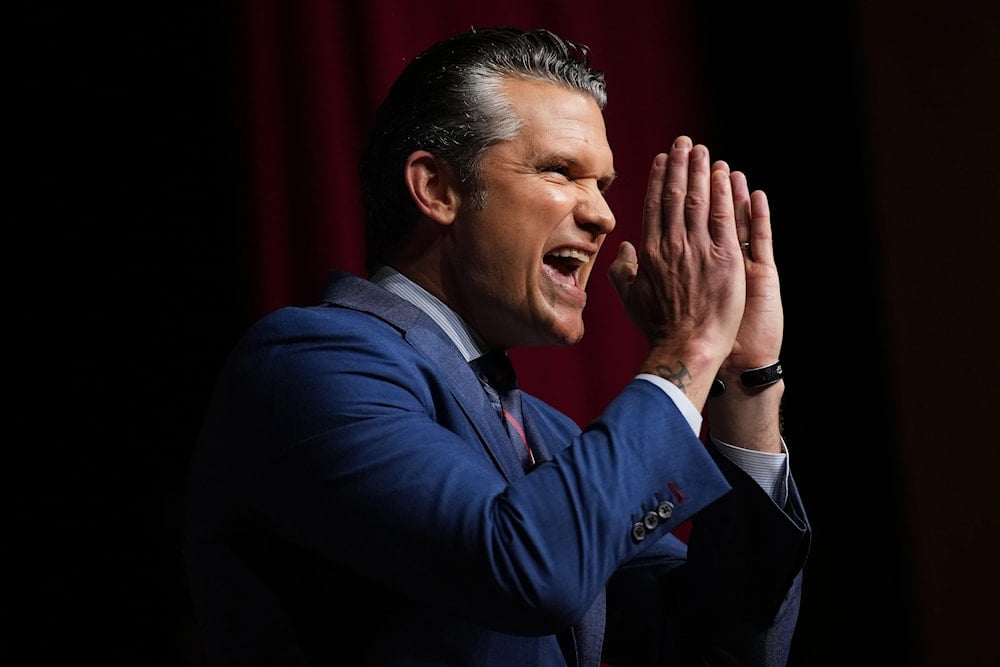Pentagon launches 'counter-narcotics' task force in Latin America
The Pentagon forms a new task force led by the II Marine Expeditionary Force, allegedly to intensify counter-narcotics operations in Latin America, raising legal concerns over deadly US military strikes at sea.
-

Secretary of Defense Pete Hegseth speaks to senior military leaders at Marine Corps Base Quantico, on September 30, 2025, in Quantico, Virginia. (Andrew Harnik/Pool via AP)
The Pentagon announced on Friday the formation of a new 'counter-narcotics' task force aimed at intensifying US military operations across Latin America. The move signals a dramatic expansion of military involvement in the Caribbean and has already raised legal concerns among lawmakers and experts.
War Secretary Pete Hegseth stated the mission's goal is "to crush the cartels, stop the poison, and keep America safe."
US Southern Command confirmed that the operations to date have focused exclusively on maritime interdictions, specifically targeting alleged drug boats in Caribbean waters. At least four vessels have been destroyed in US military strikes, resulting in the deaths of 21 people.
The new task force will be led by the II Marine Expeditionary Force (II MEF), a North Carolina-based unit known for its rapid-deployment capabilities. Southern Command emphasized that the task force will "synchronize and augment counter-narcotics efforts across the Western Hemisphere."
"This is principally a maritime effort," said Marine Lieutenant General Calvert Worth, who leads II MEF and will now command the task force, noting that operations will include maritime patrols, aerial surveillance, precision interdictions, and intelligence sharing with US and regional partners.
Admiral Alvin Holsey, head of the US Southern Command, said forming the task force around II MEF headquarters would enhance the military’s capacity "to detect, disrupt, and dismantle illicit trafficking networks faster and at greater depth."
Legal experts question legality of lethal maritime operations
While officials say the task force will focus on sea-based missions, legal experts have voiced alarm over the use of lethal force against suspected traffickers, questioning whether such strikes meet legal standards under the law of war.
The Trump administration has not disclosed what evidence supported the lethal targeting of the vessels, nor clarified what weapons or platforms were used. Experts say the government has failed to demonstrate that less-lethal alternatives, such as warning shots or interception, were attempted first.
Some former military lawyers argue that the legal rationale offered by the administration does not meet international or domestic legal thresholds. Questions have also emerged over why the US military is leading the missions, rather than the Coast Guard, the primary agency for maritime law enforcement.
Last week, the Pentagon submitted a notification to Congress in which President Donald Trump formally declared that the United States is engaged in a "non-international armed conflict."
The declaration appears aimed at providing a legal framework for the US military’s expanded role in what they claim are anti-narcotics operations in the region, particularly as speculation mounts over potential strikes on sites inside Venezuela.
As operations escalate, critics warn that the expansion of presidential powers and use of force abroad, especially without public disclosure or congressional debate, raises serious questions about transparency, accountability, and the legal limits of military action.

 3 Min Read
3 Min Read








